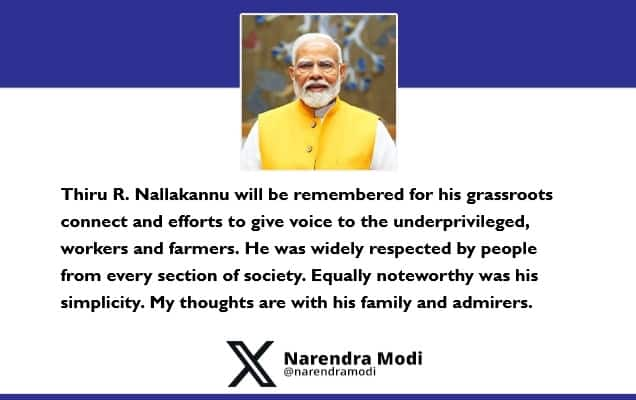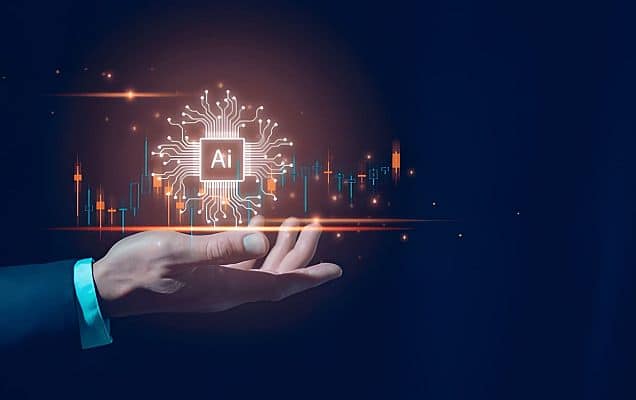Friends,
On this important occasion, the nation’s first Tribal Freedom Fighters Museum is being dedicated to the countrymen. Fighting for India's identity and independence, Bhagwan Birsa Munda spent his last days in this jail in Ranchi. The land, which had an imprint of Bhagwan Birsa and which is witness to his penance and sacrifice, is a kind of pilgrimage for all of us. Some time back I had called for the establishment of Adivasi (tribal) museums across the country to cherish the history of tribal society and their contribution to the freedom struggle. The central and all the state governments are working together for this purpose. I am happy that the first tribal museum in Jharkhand, which is rich in tribal culture, has come into existence today. I congratulate the tribal society of the country, every citizen of India for the Bhagwan Birsa Munda Memorial Udyan cum Freedom Fighter Museum. This museum will become a living venue of our tribal culture full of diversity, depicting the contribution of tribal heroes and heroines in the freedom struggle. There are statues of many tribal heroes, including Sidhu-Kanhu, Poto Ho, Telanga Kharia, Gaya Munda, Jatra Tana Bhagat and Diva-Kisun in this museum and their life stories have also been explained in detail.
Friends,
Apart from this, work is going on at a rapid pace on nine more such museums in different states of the country. Very soon, we will see the museums in Rajpipla in Gujarat, Lambasingi in Andhra Pradesh, Raipur in Chhattisgarh, Kozhikode in Kerala, Chhindwara in Madhya Pradesh, Hyderabad in Telangana, Tamenglong in Manipur, Kelsih in Mizoram and Ponda in Goa. These museums will not only make the new generation of the country aware of the pride of tribal history, but will also give a new impetus to tourism in these areas. These museums will also preserve and promote songs, music, art-skills, handicrafts and crafts passed down from generation to generation.
Friends,
Bhagwan Birsa Munda and many of our tribal fighters had sacrificed their lives for the freedom of the country. But what was the meaning of independence and Swaraj to them? The innate goal of the freedom struggle was that the sovereignty of India and the power to make decisions for India should rest with the people of India. At the same time, the fight for 'Dharti Aaba' was also against the ideology that wanted to erase the identity of India's tribal society. Bhagwan Birsa Munda knew that attacking diversity in the name of modernity, tampering with ancient identity and nature was not the way for the welfare of the society. He was in favor of modern education, he advocated for changes and he also showed courage to speak against the evils and shortcomings of his own society. He campaigned against illiteracy, drug addiction, discrimination and created awareness among the youths of the society. It was the impact of these moral values and positive thinking that gave a new energy to the tribal society. The same foreigners, who considered our tribal society, Munda brothers and sisters, as backward and weak, were brought to their knees by Bhagwan Birsa Munda and Munda society. This fight was for the root-forest-land, the identity of the tribal society and the independence of India. And it was so powerful because Bhagwan Birsa had taught the society to fight against the external enemies as well as the weaknesses within. Therefore, I think Janjatiya Gaurav Diwas is also an occasion to remember this great sacrifice of empowering the society and an opportunity to remember it again and again.
Friends,
The 'Ulgulan' (revolution) of Bhagwan Birsa Munda was not limited to victory and defeat. It was not an ordinary battle of history. ‘Ulgulan’ was an inspiring event for hundreds of years to come. Bhagwan Birsa gave life for the society, culture and the country. Therefore, he exists as God in our faith and spirit even today. When we see the tribal society becoming a participant in the development of the country and leading India on environment, we see the face of Bhagwan Birsa Munda and feel his blessings. Therefore, the tribal society should preserve the customs and culture of their society. This is what our India is doing today for the entire world!

Friends,
Bhagwan Birsa is not an individual but a tradition for all of us. He is the embodiment of the philosophy of life that has been a part of the soul of India for centuries. We don't just call him ‘Dharti Aaba’. Around the time when Father of the Nation Mahatma Gandhi was becoming the voice of humanity against apartheid in South Africa, Birsa Munda had already written a chapter of the battle against servitude in India. ‘Dharti Aaba’ did not live for very long. But he wrote a complete history for the country in a short span of life and gave direction to the generations of India. In the ongoing Amrit Mahotsav of Independence, the country is reviving countless such pages of history, which were forgotten in the past decades. The freedom of this country involves the sacrifices of so many fighters, who did not get the recognition that was due to them. If we look at that period of our freedom struggle, there was hardly any period when there was no tribal revolution in different parts of the country! Be it the Munda movement under the leadership of Bhagwan Birsa, or the Santhal struggle and the Khasi struggle, the Ahom struggle in the Northeast or the Kol war in the Chota Nagpur region and the Bhil struggle, the tribal sons and daughters of India challenged the British rule in every period.
Friends,
If we look at the history of Jharkhand and the entire tribal region, Baba Tilka Manjhi had launched a vigorous front against the British. The Sidho-Kanhu and Chand-Bhairav brothers had blown the trumpet of the Santhal war from Bhognadih. There were so many fighters like Telanga Kharia, Sheikh Bhikhari and Ganpat Rai, heroes and leading ladies like Tikait Umrao Singh, Vishwanath Shahdeo, Nilambar-Pitamber, Narayan Singh, Jatra Oraon, Jadonang, Rani Gaidinliu and Rajmohini Devi who made supreme sacrifices to carry forward the freedom struggle. The contribution of these great souls cannot be forgotten. Their glorious past and sagas will give energy for a new India. Therefore, the nation has appealed to its youth and historians to rewrite the history of independence involving these personalities. The youth have been urged to come forward. A writing campaign is being run regarding this in this virtuous period of freedom.
I would also request the youth of Jharkhand, especially the tribal youth, who not only read the history of this land, but have seen, heard and lived it to take the responsibility of this resolve of the country. You can research or write a book on the history related to the freedom struggle. You can also discover new innovative ways to take tribal art and culture to the masses. Now it is our responsibility to give new consciousness to our ancient heritage and history.

Friends,
Bhagwan Birsa Munda had dreamed of existence, identity and self-reliance for the tribal society. Today the country is also moving forward with this resolve. We have to remember that no matter how big a tree is, it can stand tall only when it is deeply rooted. Therefore, AatmaNirbhar Bharat is also a resolve to connect with its roots and strengthen its roots. This resolution will be fulfilled with the efforts of all of us. I have full faith our country will definitely fulfill its resolutions and will also give direction to the entire world with the blessings of Bhagwan Birsa. I once again wish the nation for the Janjatiya Gaurav Diwas. I would urge the students of the country to visit Ranchi and see this exhibition showcasing the great culture of the tribal community. Try to learn something there. There is a lot here for every child of India to move forward with determination in life. I once again thank you all very much.














